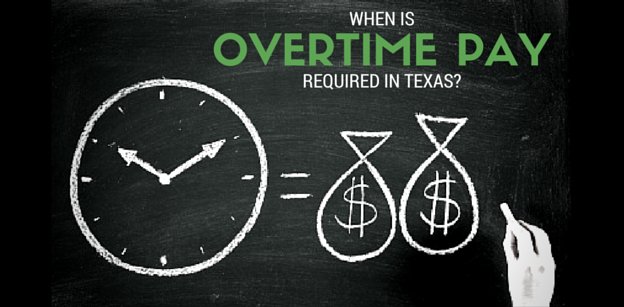The Fair Labor Standards Act (FLSA) governs when an employer is required to pay overtime to an employee. The FLSA stipulates that unless an employee is exempt from the FLSA, an employer must pay the employee overtime for all hours worked in excess of 40 hours in a given workweek. Overtime pay must equal at least one and one-half times the employee’s regular rate of pay. Knowing if, and when, you may be owed overtime pay can be quite complicated, but the following provides a general overview of the primary issues concerning overtime pay.
Exempt vs Non-Exempt
One of the first steps in determining if you are eligible for overtime pay is to figure out if you are exempted from the FLSA. If you are an exempt employee, your employer is not required to pay you overtime pay for hours worked in excess of 40 hours per week. In this brief post, it would be impossible to address every possible job scenario as exempt or non-exempt. However, there are some general guidelines to remember when making the determination. To be exempt, an employee must meet the following criteria:
- Be paid at least $455 per week ($23,600 per year)
- Be paid on a salary basis
- Perform exempt job duties.
The majority of the exempt job duties fall into three categories; executive. professional and administrative.
- The executive exemption includes jobs in which the employee’s primary duty consists of managing the entity or a department or subdivision of the entity. The employee must also direct the work of two or more full time employees (or full time equivalent employees), and have authority in hiring, firing, promoting, or other terms and conditions of employment.
- The professional exemption (also known as the learned professional exemption) includes jobs in which the employee’s primary duty consists of the performance of work that requires advanced knowledge or training in a field of science or learning. The employee must have also gone through specialized instruction/training to acquire that advanced knowledge.
- The administrative exemption includes jobs in which the employee’s primary duty is the performance of office or non-manual work directly related to the management or general business operations of the employer or the employer’s customers. Additionally, the employee must exercise discretion and independent judgment with respect to matters of significance in order to be characterized as an exempt employee.
Calculating Overtime
For non-exempt employees, overtime is calculated by multiplying the employee’s regular rate of pay by one and one half and multiplying that number by the total number of hours worked over 40 hours in a given workweek.
An employee’s regular rate of pay is generally based on his/her hourly rate of pay. So if the employee earns $10.00 per hour, his/her overtime pay would be $15.00 per hour.
For a non-exempt employee who is paid a salary, the employee’s overtime rate can fluctuate from week to week depending on the number of hours worked. A salaried employee’s overtime pay is calculated based on the salary as well as the number of hours that the salary is intended to compensate the employee for. For a salaried employee who is expected to regularly work 50 hours per week, overtime is calculated by first dividing the employee’s weekly pay by the total number of hours worked. So if the employee earns $1,000 per week and worked 50 hours in a particular week, the employee’s regular rate of pay would equal $20.00 per hour that week. For that week, the employee would be owed $10.00 for each hour of overtime worked ($10.00 per hour x 10 hours of overtime = $100.00).
Non-Exempt Employee’s Right to Overtime Pay
If you are a non-exempt employee (or if you are unsure if you are exempt or non-exempt), you have certain legal rights that protect you when your employer fails to pay you overtime pay. A claim for unpaid overtime may be filed with the United States Department of Labor or the Texas Workforce Commission. However, speaking with an employment attorney knowledgeable in the overtime laws is an important first step in determining when overtime pay is required.








